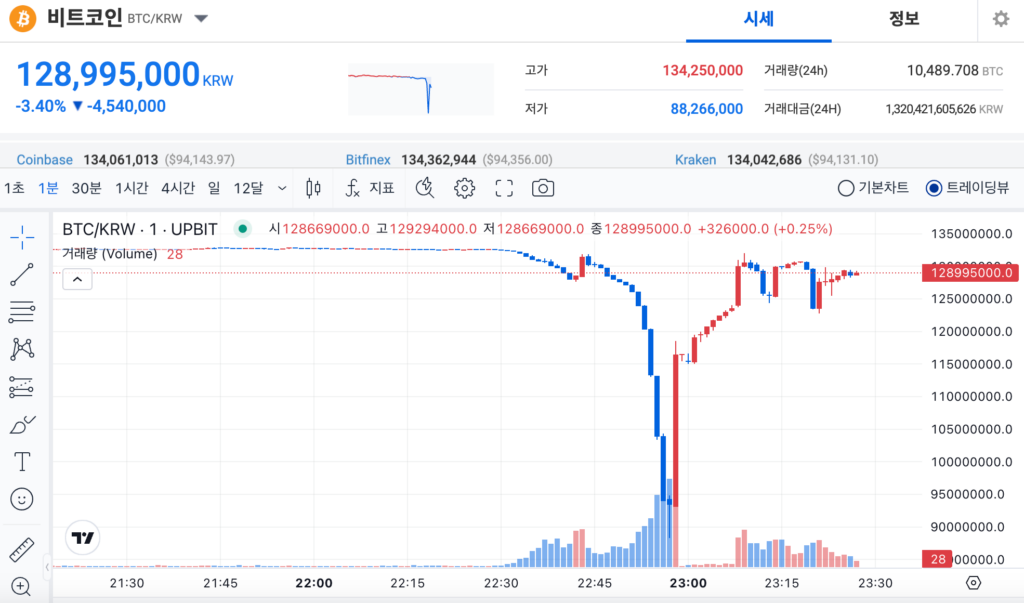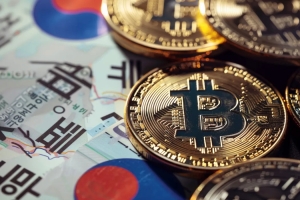South Korea declares martial law amid political unrest; Bitcoin price plunges 30% on local exchange before rebounding, sparking market volatility concerns.
Lee Jae-Myung, the head of the opposition Democratic Party, voiced fear that the military will detain parliamentarians in South Korea in reaction to the imposition of martial law.
In a live television announcement, South Korean President Yoon Suk Yeol proclaimed martial law, which probably caused the price of Bitcoin (BTC) to plummet by over 30% against the won on the local exchange Upbit.
The BTC/KRW pair fell 28% after the president’s announcement, from almost 130 million KRW to 93.6 million KRW, according to statistics from Upbit on December 3. The price then rose back to about 126 million KRW. In response to “threats posed by North Korea,” Yoon said that martial law will be imposed.

“This is a necessary step to protect the people’s freedom and safety as well as the nation’s sustainability from the instability sparked by these subversive, anti-state elements,” Yoon stated.
The president of South Korea mentioned efforts by the Democratic Party of the Nation to remove government leaders from office. In a livestream on December 3, Lee Jae-myung, the leader of the Democratic Party, stated that the parliament would try to overturn Yoon’s order. Still, he was worried that the military might arrest members.
Shortly after Yoon’s speech, CNN reported that most legislators in South Korea’s national assembly blocked the martial law proclamation.
With the 13th largest economy in the world, South Korea is home to several businesses, such as Samsung and SK Group, that may be impacted by political unrest there. Apart from Upbit, cryptocurrency exchanges Bithumb, Korbit, and Coinone are based in South Korea.
The Democratic Party lawmakers in South Korea had initially suggested imposing a capital gains tax on cryptocurrency beginning in 2025. However, on December 1, they declared they were postponing the proposal by two years.



